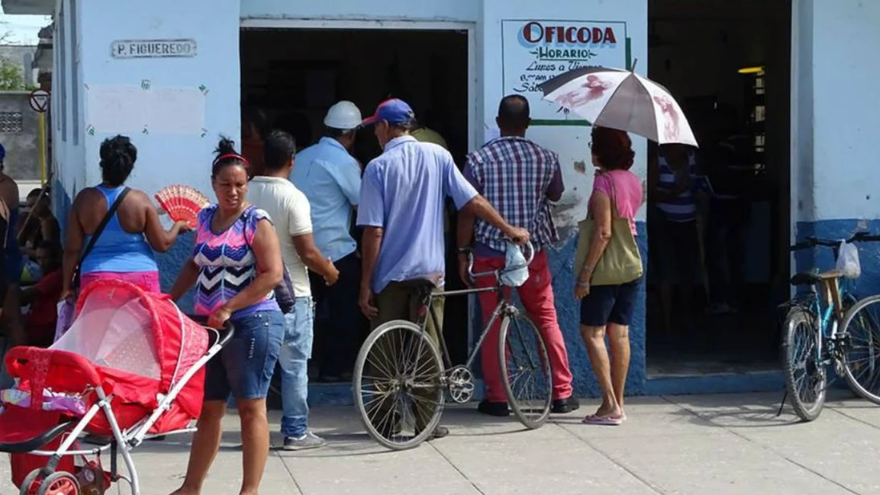
![]() 14ymedio, Havana, May 3, 2021 — If figures from the Sancti Spíritus Wholesale Food Company are to be believed, the province’s residents consume about 3.5 tons of food a month. By failing to have their names removed from the ration card registry, as required by law, residents currently living overseas are “bleeding the economy dry” according an article published on Sunday in the Escambray, a state newspaper.
14ymedio, Havana, May 3, 2021 — If figures from the Sancti Spíritus Wholesale Food Company are to be believed, the province’s residents consume about 3.5 tons of food a month. By failing to have their names removed from the ration card registry, as required by law, residents currently living overseas are “bleeding the economy dry” according an article published on Sunday in the Escambray, a state newspaper.
The local daily reported that 12,400 residents remained on the rolls, which are maintained by Oficoda, even though they are living abroad. A recent audit found that more than 460 households in the province were operating as though their relatives overseas were still living in Cuba
Jorge Luis Domínguez Sánchez, a commercial specialist with the Sancti Spíritus Wholesale Food Company, told Escambray that after an audit of the province’s ration rolls, figures indicated that “more than 65,800 tons of the food alloted to each family — rice, grains and cooking oil as well as raw and refined sugar — goes to 12,400 Spiritus citizens living abroad. Not included in this analysis are items such as yams, plantains, milk and meat which are set aside for medically prescribed diets.” The results of this audit indicate a level of rationed food consumption that is as spectacular as it is incredible.
The Escambray article points out that workers at Oficoda’s forty-one provincial offices have had to make a huge effort to update the rolls because all population tracking measures have failed. “Who knows if a neighbor on any given block is on an overseas mission, is incarcerated, or went to Russia for fifteen days and decided to spend the year travelling?” it asks.
At the beginning of March, the Central State Administration began demanding that people who leave the country for “work, study or cooperation for a period greater than three months” have their names removed from the rolls. Though this requirement has been in place since 1991 — it has normally applied to individuals who are incarcerated, in nursing homes or permanently hospitalized — the measure expressly exempts healthcare workers, athletes and other professionals on official missions overseas. While working abroad, they still are still entitled to their monthly quota of rationed, subsidized food and cleaning supplies.
The requirement that the names of emigrant family members be removed from ration card registry has largely been ignored. This means thousands of people throughout the island can still receive their relatives’ monthly quotas, which they are free to consume or resell. Now, with tighter controls, Cubans wonder if the surplus food will be redirected, and under what conditions, to the open market.
According to the article, updating the records is part of the ’Ordering Task’*, which includes the currency unification process. Rates of compliance with the regulation is highest when those being removed from the rolls are prison inmates, residents of elder care facilities, physically handicapped or in orphanages.
At the beginning of the year a wave of people were suddenly ready to tackle the paperwork necessary to remove their ineligible relatives from the rolls when it was revealed that there would be hefty fines for heads of households with emigrants listed on their ration books. Though no penalties have been imposed so far, at least not in a significant way, fear of being sanctioned has prompted thousands of people to take action that they have been postponing, sometimes for years.
*Translator’s note: The ‘Ordering Task’ [Tarea ordenamient0] is a collection of measures that includes eliminating the Cuban Convertible Peso (CUC), leaving the Cuban peso as the only national currency, raising prices, raising salaries (but not as much as prices), opening stores that take payment only in hard currency which must be in the form of specially issued pre-paid debit cards, and other measures related to the economy.
____________
COLLABORATE WITH OUR WORK: The 14ymedio team is committed to practicing serious journalism that reflects Cuba’s reality in all its depth. Thank you for joining us on this long journey. We invite you to continue supporting us by becoming a member of 14ymedio now. Together we can continue transforming journalism in Cuba.
